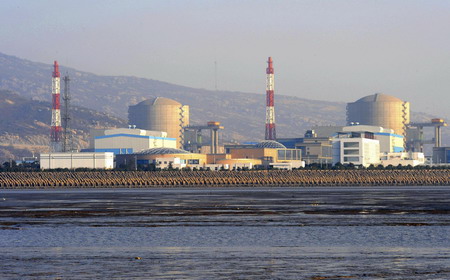Energy
Approvals halted for new nuclear plants
By Liu Yiyu (China Daily)
Updated: 2011-03-17 09:23
 |
Large Medium Small |
|
 |
|
A nuclear power station in Lianyungang, Jiangsu?province, Dec 16, 2010. [Photo / Xinhua] |
A thorough safety check of nuclear facilities, and projects under construction, will be conducted immediately.
"Any hazards must be thoroughly dealt with, and those that do not conform to safety standards must immediately cease construction," a State Council statement said.
"We must fully grasp the importance and urgency of nuclear safety, and safety must be the top priority in the development of nuclear power."
The State Council called for "the most advanced standards" to be used in safety checks. Any project failing to meet these standards must be halted, it said after the meeting chaired by Premier Wen Jiabao.
"The move will slow down development but we see safety as our top concern," Song Kexiang, CNNC spokesman, said.
China is building 12 nuclear plants in addition to the six in operation, with at least 25 in the pipeline.
Production capacity is scheduled to be expanded to 86 gigawatts (gW) in 2020 from the current 10.8 gW, and nuclear power set to be increased to 5 percent of total energy output, up from 1 percent now.
Sun Qin, president of CNNC, said in an earlier interview that China would vigorously develop nuclear power during the 12th Five-Year Plan (2011-2015) period, following moderate development in the past five years.
The new measures could act as a brake on the nuclear industry, one expert said.
"The measures may hamper China's ability to meet its nuclear target in 2020," said Xiao Xinjian, a nuclear industry expert at the Energy Research Institute under the National Development and Reform Commission.
Most domestic reactors use technology similar to Japan's but this will now be upgraded, Xiao said.
China plans to have 40 gW of nuclear capacity by 2015 and if it is to realize its 2020 target all projects will have to be approved over the next five years, he said.
| 分享按鈕 |



